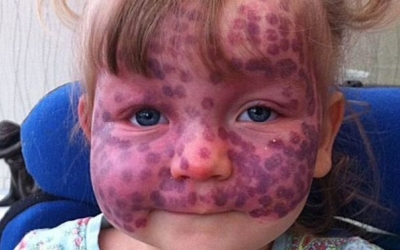- Latest news▼
-
10:23, April 19 JAMA Oncology: Urine test can help rule out high-grade prostate cancer with almost 100% accuracy, study shows

-
18:00, April 18 Daily Mail: Elderly woman in China gets infected with brain-eating amoeba

-
14:19, April 18 Obesity: exercising before breakfast helps you lose weight faster

-
10:42, April 18 The Conversation: childhood trauma can cause pathological hoarding

-
08:37, April 18 Daily Mail: Satiating food reduces cravings for sweets, nutritionist says

-
18:22, April 17 First Armenian-German Conference entitled “Heart Failure Spring School”

-
08:38, April 17 Why do kids usually recover from COVID-19 more easily than adults?

-
14:37, April 16 Daily Mail: intermittent fasting is not suitable for children and women before their periods

-
16:41, April 15 Cell: in carriers of defective BRCA2 gene, sugar consumption increases cancer risk

-
15:04, April 15 305 cases of measles recorded in Armenia so far in 2024

-
14:38, April 15 Food and Environmental Virology: tea contributes to effective coronavirus control

-
12:41, April 15 Daily Mail: vitamin A, B3 and E supplements can be dangerous

-
10:56, April 15 Diabetes Care: evening physical activity is good for the heart

-
08:27, April 15 Women are more susceptible to blood loss and death during bypass surgery than men, researchers say

-
18:42, April 13 WHO: Nigeria pioneers revolutionary meningitis vaccine

All materials
Five-year-old girl has rare 'polka dot' skin condition

The family of a brave little girl whose rare ‘polka dot’ condition has touched the hearts of thousands have made a desperate plea. Matilda Callaghan has a rare birthmark which covers all her face and the right side of her body.
She now needs help buy a wheelchair that could change her life.

Doctors at Alder Hey children’s hospital have treated Matilda, aged 5, with laser surgery in an attempt to stop the birth mark spreading. It is the lasers which leave distinct “polka dot” marks on her skin.
The unusual marks can last two to three weeks and sometimes cause people to stare. But Matilda and her family have had to get used to them as medics think she may have to undergo treatment every two months for the next 16 years if they hope to prevent the spread of her birth mark.
The lasers cause bruising when they burn the blood capillaries under Matilda’s skin to prevent the mark from growing but the surgery is not cosmetic in nature - if it was not treated it the mark could grow and become deformed.
Matilda has an illness called Sturge Weber syndrome (SWS), a rare neurological and skin disorder, which means the birthmark is also internal and affects her brain, eyes and gums.

The youngster, from Leigh, has been having the treatment for three years.
The birth mark is on her brain which has caused her learning difficulties and epilepsy.
Without treatment the birth mark on her skin could bubble and bulge but it has already caused serious internal damage.
SWS has also caused Matilda visual impairment; epilepsy; glaucoma and paralysis in her left side.
The little fighter was also born with two holes in her heart and a pouch in her throat and has undergone over 30 operations, her first when she was just 24 hours old.
She also has digestion problems caused by Tracheoesophageal Fistula which means she was born without a tube from her throat to her stomach so doctors had to build one for her.
She can only say ‘mummy’ and ‘daddy’, ‘yes’ and ‘no,’ and communicates with gestures such as tapping her chin for a drink.
Paralysis and seizures have limited her mobility and her limbs are out of proportion which means she cannot walk.

But the specialist wheelchair the family are hoping to buy will give her more mobility and freedom.
Dad Paul Callaghan, 48, said only so much money would be allocated by the NHS towards a wheelchair, but the one which would best suit her needs is almost £5,000.
He said: “We want to be able to take her for walks in the countryside – we like to get out as much as we can.
"We use all our money to cater for Matilda’s needs so it’s hard to get holidays which would be our escape.”

Follow NEWS.am Medicine on Facebook and Twitter
- Video
- Event calendar
- Archive
- Most read
month
week
day
- Pediatrics: Hypoglossal nerve stimulation implant helps with sleep apnea 1365
- WHO: Nigeria pioneers revolutionary meningitis vaccine 1171
- One-third of women experience menstruation-related migraines, most often during premenopause - study 1137
- Women are more susceptible to blood loss and death during bypass surgery than men, researchers say 953
- Food and Environmental Virology: tea contributes to effective coronavirus control 939
- Daily Mail: vitamin A, B3 and E supplements can be dangerous 938
- Cell: in carriers of defective BRCA2 gene, sugar consumption increases cancer risk 910
- 305 cases of measles recorded in Armenia so far in 2024 902
- Diabetes Care: evening physical activity is good for the heart 892
- Daily Mail: intermittent fasting is not suitable for children and women before their periods 715
- First Armenian-German Conference entitled “Heart Failure Spring School” 508
- Why do kids usually recover from COVID-19 more easily than adults? 380
- Obesity: exercising before breakfast helps you lose weight faster 367
- The Conversation: childhood trauma can cause pathological hoarding 359
- Daily Mail: Satiating food reduces cravings for sweets, nutritionist says 333
- Find us on Facebook
- Poll





